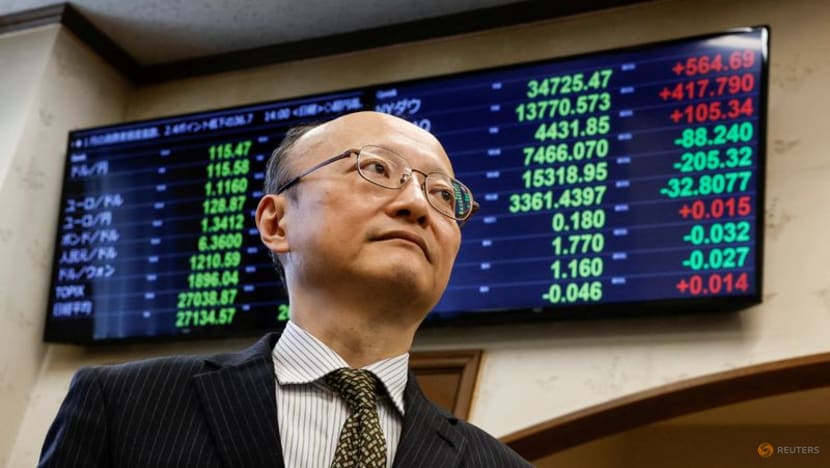Japan govt, BOJ to coordinate on market rout, see financial system stable

FILE PHOTO: Japan's vice minister of finance for international affairs, Masato Kanda, poses for a photograph during an interview with Reuters at the Finance Ministry in Tokyo, Japan January 31, 2022. Picture taken January 31, 2022. REUTERS/Issei Kato
TOKYO :Japan's government must work closely with the central bank and overseas authorities in the wake of banking problems in the West, Japan's top financial diplomat said on Friday, though adding that the Japanese economy was stable.
Global financial markets, including Japan's, went on a rollercoaster ride this week as fears of a banking crisis gripped investors, but asset prices showed some signs of steadying on Friday after a series of banking sector lifelines bolstered confidence.[MKTS/GLOB]
"Risk aversion has been seen in financial markets," Masato Kanda, vice finance minister for international affairs, told reporters after a meeting with his counterparts from the banking watchdog and the Bank of Japan to discuss the markets.
"It is important for the government and the Bank of Japan to keep close coordination seamlessly to respond fully" to any developments, he said.
The three-party talks were hastily arranged as banking problems in the United States and Europe shook global markets.
Prime Minister Fumio Kishida said later that the talks were held as part of government efforts to closely watch any impact on financial system stability with "a strong sense of caution."
"We confirmed close coordination between the government and the BOJ. With this stance, we will continue to watch carefully," Kishida told a news conference.
The global economy faces risks including the war in Ukraine and a longer-than-expected period of high inflation, which has prompted global central banks, except for Japan, to tighten monetary policy.
Market turmoil after the collapse of Silicon Valley Bank (SVB) and Signature Bank in the United States has ensnared Credit Suisse in Europe, fuelling fears of another global financial crisis.
Japanese policymakers have brushed aside the chance of contagion in Japan, saying domestic banks had sufficient capital buffers to absorb losses caused by various external factors including risks from the collapse of the U.S. lenders.
"Japan's financial system remains stable as a whole," Kishida said.
Three-way meetings between the government, banking regulator and central bank are usually in times of market turbulence and typically signal policymaker alarm over price moves.
Such a meeting was last held in September, when expectations of widening U.S. and Japanese interest rate differentials pushed the yen down sharply.
Earlier on Friday, Finance Minister Shunichi Suzuki said the government was closely coordinating with the central bank and financial authorities overseas to prevent fallout from the crisis of confidence hitting banks in the West.
Japan's benchmark Nikkei share average ended higher on Friday but was still down nearly 3 per cent for the week.
Ramping up investment to meet post-COVID-19 demand, orders at service sector companies jumped 19.5 per cent to a level last seen in November 2019.









